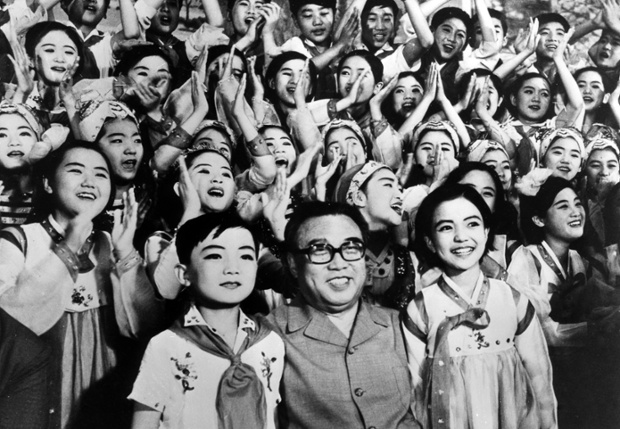Why and when did the news anchor, or newsreader as he or she is known in non-US parts of the world, acquire the status of cult hero? And, why is this a peculiarly US phenomenon? Let’s face it TV newsreaders in the UK, on the BBC or ITV, certainly do not have a following along the lines their US celebrity counterparts like Brian Williams, Megyn Kelly or Anderson Cooper. Why?
From the Guardian:
A game! Spot the odd one out in the following story. This year has been a terrible one so far for those who care about American journalism: the much-loved New York Times journalist David Carr died suddenly on 12 February; CBS correspondent Bob Simon was killed in a car crash the day before; Jon Stewart, famously the “leading news source for young Americans”, announced that he is quitting the Daily Show; his colleague Stephen Colbert is moving over from news satire to the softer arena of a nightly talk show; NBC anchor Brian Williams, as famous in America as Jeremy Paxman is in Britain, has been suspended after it was revealed he had “misremembered” events involving himself while covering the war in Iraq; Bill O’Reilly, an anchor on Fox News, the most watched cable news channel in the US, has been accused of being on similarly vague terms with the truth.
News of the Fox News anchor probably sounds like “dog bites man” to most Britons, who remember that this network recently described Birmingham as a no-go area for non-Muslims. But this latest scandal involving O’Reilly reveals something quite telling about journalism in America.
Whereas in Britain journalists are generally viewed as occupying a place on the food chain somewhere between bottom-feeders and cockroaches, in America there remains, still, a certain idealisation of journalists, protected by a gilded halo hammered out by sentimental memories of Edward R Murrow and Walter Cronkite.
Even while Americans’ trust in mass media continues to plummet, journalists enjoy a kind of heroic fame that would baffle their British counterparts. Television anchors and commentators, from Rachel Maddow on the left to Sean Hannity on the right, are lionised in a way that, say, Huw Edwards, is, quite frankly, not. A whole genre of film exists in the US celebrating the heroism of journalists, from All the President’s Men to Good Night, and Good Luck. In Britain, probably the most popular depiction of journalists came from Spitting Image, where they were snuffling pigs in pork-pie hats.
So whenever a journalist in the US has been caught lying, the ensuing soul-searching and garment-rending discovery has been about as prolonged and painful as a PhD on proctology. The New York Times and the New Republic both imploded when it was revealed that their journalists, respectively Jayson Blair and Stephen Glass, had fabricated their stories. Their tales have become part of American popular culture – The Wire referenced Blair in its fifth season and a film was made about the New Republic’s scandal – like national myths that must never be forgotten.
By contrast, when it was revealed that The Independent’s Johann Hari had committed plagiarism and slandered his colleagues on Wikipedia, various journalists wrote bewildering defences of him and the then Independent editor said initially that Hari would return to the paper. Whereas Hari’s return to the public sphere three years after his resignation has been largely welcomed by the British media, Glass and Blair remain shunned figures in the US, more than a decade after their scandals.
Which brings us back to the O’Reilly scandal, now unfolding in the US. Once it was revealed that NBC’s liberal Brian Williams had exaggerated personal anecdotes – claiming to have been in a helicopter that was shot at when he was in the one behind, for starters – the hunt was inevitably on for an equally big conservative news scalp. Enter stage left: Bill O’Reilly.
So sure, O’Reilly claimed that in his career he has been in “active war zones” and “in the Falklands” when he in fact covered a protest in Buenos Aires during the Falklands war. And sure, O’Reilly’s characteristically bullish defence that he “never said” he was “on the Falkland Islands” (original quote: “I was in a situation one time, in a war zone in Argentina, in the Falklands …”) and that being at a protest thousands of miles from combat constitutes “a war zone” verges on the officially bonkers (as the Washington Post put it, “that would mean that any reporter who covered an anti-war protest in Washington during the Iraq War was doing combat reporting”). But does any of this bother either O’Reilly or Fox News? It does not.
Unlike Williams, who slunk away in shame, O’Reilly has been bullishly combative, threatening journalists who dare to cover the story and saying that they deserve to be “in the kill zone”. Fox News too has been predictably untroubled by allegations of lies: “Fox News chairman and CEO Roger Ailes and all senior management are in full support of Bill O’Reilly,” it said in a statement.
Read the entire story here.
Image courtesy of Google Search.

